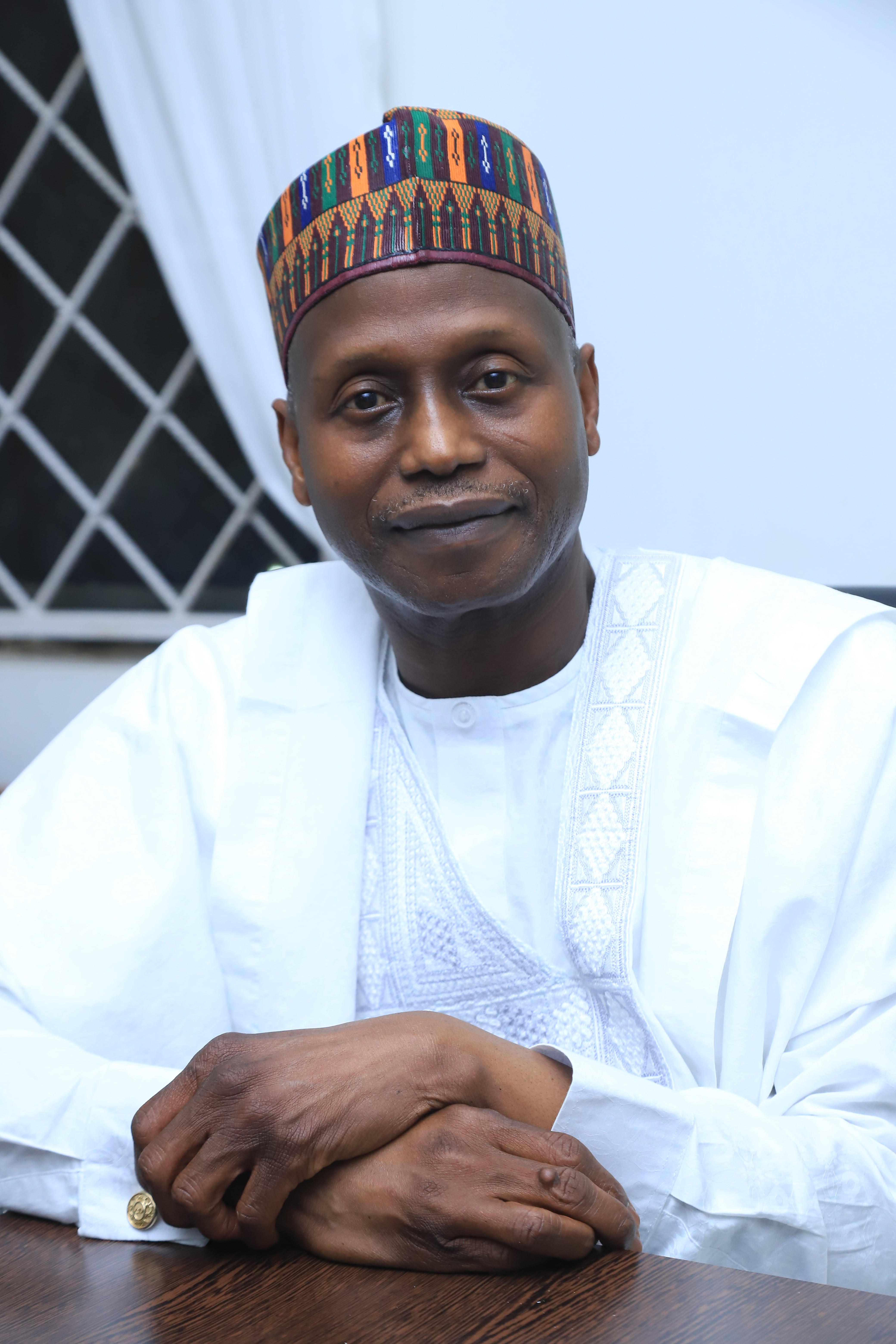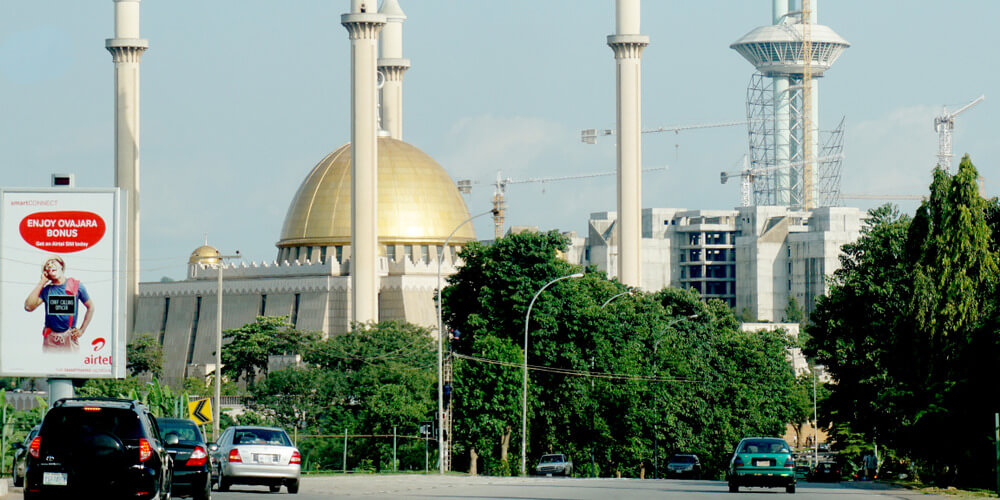Salaam Gateway spoke to Muhammadu Dikko Ladan, founder and CEO of Dar Al Halal (DAH), an advisory, consultancy, trade and investment company promoting halal trade in Nigeria, and the Organisation of Islamic Council (OIC) countries. Based in the Nigerian capital Abuja, DAH has partnered with Salaam Gateway’s parent company DinarStandard.
Salaam Gateway (SG): What’s been happening with the Islamic economy in Nigeria?
Muhammadu Dikko Ladan: The drive towards the Islamic economy generally has been increasing rapidly. There is a growing awareness of standardisation, meaning groups and institutions are uniting to create platforms for commerce. There is an increased interest from commercial banks to establish Islamic finance – or non-interest finance as it is called locally. The central bank is granting more licences. Globally people have been impacted by COVID-19, but the drive to create a wider understanding of halal and Islamic concepts is growing. There is also an increase in interest in Muslim-themed media including TV and radio stations.
SG: Tell us about Dar Al Halal.
Ladan: Dar Al Halal was formed in August 2020 and currently has five staff members and a number of associates. We are creating a Nigerian platform, while partnering internationally with DinarStandard and have approached the Islamic Development Bank. We are also approaching the Halal Centre of Excellence in Malaysia and are supported by the Ministry of Finance. We have reached out to some financial institutions and are working with the food sector. Hence, the company is growing and engaging with Nigerian Islamic institutions to see how we can collaborate.
SG: In what areas of the Islamic economy are DAH involved?
Ladan: I have registered DAH financial services, venture capital, healthcare and agriculture and recently received approval to create the DAH Foundation. Driving this my belief the government should not be alone in doing things to boost the economy. The private sector needs to push these initiatives.
We believe, in addition to what others are doing, DAH – in partnering with DinarStandard and global partners – can create a backbone for Nigeria to be a part of the global Islamic economy. Given the market size, there is plenty of room and we want to drive it as the private sector.
We have the required support to approach government for either the right legislation or formal support. To date the government support has been tremendous, particularly regarding the financial sector. The Ministry of Finance is keen on attracting Islamic finance and its related products for Nigeria as a growth element.
Dikko Ladan, founder and CEO of Dar Al Halal (Courtesy DAH).
SG: What market gaps are you aiming to fill?
Ladan: The key difference is, when you look at the Gulf Cooperation Council (GCC) countries and some predominantly Muslim countries, the institutions are automatically halal. They drive the Islamic economy like the Dubai government is doing through the Department of Dubai Economic Development (DED). However, for Nigeria and several other African countries with Muslim populations, many are secular and the institutions must push the market in that direction. That is the gap DAH has identified.
SG: How are halal certification standards in Nigeria?
Ladan: DAH is interested in promoting standardisation awareness and halal certification. We are moving from a stage where certification is growing and people will venture into manufacturing. Products must be affordable; an economic element whereby, if people are only manufacturing halal products, they have to identify the market and the breakeven period is significant. Hence, there is a rise in halal certification, but the main challenge is advertising and marketing products. Industries must unite – once people pull together, marketing costs will reduce. Locally, people travel from market to market selling halal products, especially on market days and after jummah (Friday) prayers. What we want is big halal-certified industries, currently deficient in Nigeria.
SG: Is there a government-level push to develop the Islamic economy?
Ladan: It is open to being pushed, but Nigeria is a secular society with the ratio between Christians and Muslims being 45% and 55%. Hence, the government has created trade and commerce institutions and it has been left to the country’s halal industry to push for certain approvals the government is willing to support. The industry must also encourage the entire Nigerian business sector to understand you don’t have to be Muslim to make halal products. That is really the key – understanding.
SG: You have developed joint ventures and new DAH segments including agriculture. Are only Nigerians involved?
Ladan: We want to develop full value chains for various food industry sectors. We will invest in farms, but also bring in partners within Nigeria and abroad to have a collective effort to create a Nigerian halal market. Hence, DAH has a Dubai office as I want to work closely with the halal economy, starting with DinarStandard, and reach out to other countries like Indonesia and Malaysia where DinarStandard is already introducing us to people. We cannot do everything, but want to be a catalyst and enabler for ourselves and create ecosystems, Inshallah.
SG: Is Muslim-friendly tourism developing?
Ladan: Yes – and travel and tourism as people undertake hajj and umrah. There are Muslim-friendly hotels emerging, especially in northern Nigeria and one or two in the southwest. Modest fashion is also growing rapidly, because the younger generation is doing halal fashion.
SG: Are you hopeful about increased trade due to the implementation of the African Continental Free Trade Area (AfCFTA)?
Ladan: The concept of Halal and intra-African trade has existed for centuries. The trans-Saharan trade route was an extensive trade network that connected the great kingdoms of West Africa to the Mediterranean and the Indian Ocean. Over time and with the emergence of Transatlantic trade, intra-African trade weakened and by 1995, only 10% of Africa’s total trade was intra-African. To reinvigorate intra-African trade, Africa officially started to trade under the AfCFTA in 2021. This pact connects 1.3 billion people across 55 countries with a combined gross domestic product valued at $3.4 trillion. AfCTA could increase Africa’s exports by $560 billion. Once fully operational, it could also boost intra-African agricultural trade, estimated to currently be less than 20% of total agricultural trade.
SG: How is Nigeria’s trade with Organisation of Islamic Council (OIC) countries?
Ladan: Between 2015 and 2020, Nigeria’s total exports to OIC countries was valued at over $40 billion. Three countries - Indonesia, Ivory Coast, and Senegal - accounted for 80% of that export trade. While during that period, Nigeria’s total imports from OIC countries were valued at over $17 billion. Around 80% of the import trade was spread across eight countries: UAE, Indonesia, Togo, Turkey, Malaysia, Cote d’Ivoire, Saudi Arabia, and Benin.
SG: Is the halal pharmaceutical sector developing in Nigeria?
Ladan: There is a growing need, especially in the Muslim-dominated areas, for halal pharmaceuticals and healthcare in the sense Muslim community members are reluctant to take certain medicinal products they believe are not halal. There is a government drive to educate and explain medication is halal compliant, but also a private-sector need to embrace and invest in halal pharmaceuticals.
The main challenge is traditionally, across Nigeria and globally, Western medication has dominated, so these are the ones largely prescribed. However, within communities there are many herbal and local remedies people take that can be halal compliant.
Gradually, people are taking an interest in packaging and preparing halal-compliant products for the ordinary man. More importantly, the imams and scholars are making significant efforts to educate and enlighten people on this aspect. There is a growth in the number of female doctors and people are encouraged to have chaperons while being treated; make the women and the children happy. Healthcare-wise, there is a need for investment and awareness.
© SalaamGateway.com 2022. All Rights Reserved


